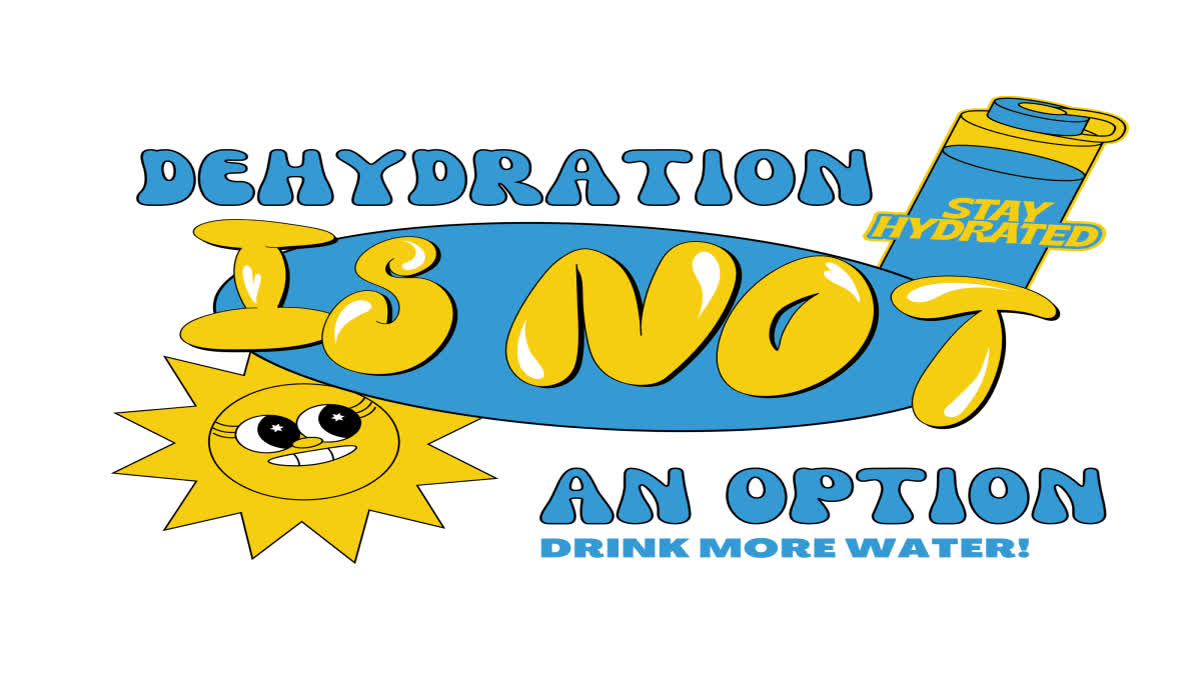Hyderabad: Dehydration is the absence of enough water in our bodies. It occurs when our body loses more fluids than it takes in, leading to an imbalance in the body's electrolytes and reduced ability to function properly. We will see in this article on how to prevent dehydration. We will also offer some tips to manage dehydration.
Dehydration during summer and winter: It is often assumed that dehydration occur to people only in summer. However, dehydration is even common in winter as:
- One tends to decrease the level of fluid intake in the body due to lower temperatures.
- Usually, people sweat less in cold weather, resulting in a lower intake of fluid. However, Drinking sufficient water is still necessary to replenish fluids in the body as the body continues to lose moisture in cold weather as well.
Ways to prevent dehydration:
Ensuring a well-hydrated body involves more than just guzzling water. Here's what you need to know:
- Stay Hydrated Throughout the Day: It's no secret that drinking water is key to maintaining hydration levels. However, one should not overlook other fluid options such as diluted squash or fruit juices other than water.
- Consume Hydrating Foods: Incorporate water-rich fruits and vegetables like watermelon, cucumber, oranges, and lettuce into your diet. Also, one should incorporate foods rich in healthy fats like avocados and nuts, which also play a role in supporting skin hydration.
- Use Hydrating Skincare Products: Opt for skincare products featuring hydrating ingredients like hyaluronic acid, glycerin, and ceramides. You can also apply lip balm with hydrating ingredients like shea butter or coconut oil to maintain your lips moisturised.
- Limit Hot Showers and Harsh Cleansers: Excessive hot water and harsh cleansers can strip your skin of natural oils, leading to dehydration. You should use mild water along with hydrating cleansers in order to maintain your skin's moisture balance.
- Protect Your Skin from UV rays: We should shield our skin from harmful UV radiations by applying sunscreen daily, which can contribute to skin dehydration. Alongside this, choose protective clothing and seek shade during peak sun hours.
- Humidify Your Environment: Use a humidifier, especially during dry seasons, to add moisture to the air and prevent excessive skin dryness.
- Moderate Caffeine and Alcohol Intake: Remember that both caffeine and alcohol can act as diuretics, contributing to dehydration. Counterbalance their effects by increasing your water intake.
Some of the early warning signs of dehydration:
- Dry skin: Your skin may feel tight, rough, or flaky. Fine lines and wrinkles may become more pronounced due to decreased skin elasticity.
- Chapped or cracked lips: Your lips may feel dry, and tight, or develop cracks. Lips might appear red, irritated, or peeled.
- Dull complexion: Dehydration can lead to a lacklustre complexion with less radiant and glowing skin.
- Increased skin sensitivity: Dehydrated skin can become more sensitive to irritants, leading to itching, redness, or discomfort.
- Delay in wound healing: Dehydrated skin can have impaired wound healing and might take longer to recover from cuts or other injuries.
Causes of Dehydration:
Dehydration is usually caused by not drinking enough fluid compared to the amount of fluid that we lose. Sometimes it occurs simply for not drinking enough water because of several reasons.
Other causes of dehydration are:
- Diarrhea
- Vomiting
- Fever
- Excessive sweating
- Increased urination
Who is at risk from dehydration?
Anyone can become dehydrated, but certain groups, like infants, senior citizens, unhealthy people and athletes are at a greater risk.
- Infants: Children and infants are the most likely group to suffer from dehydration, causing severe diarrhoea and vomiting.
- Senior citizens: As people become old, their thirst sense becomes less acute and thus they become less aware that they are becoming dehydrated. Older adults also may have mobility problems that limit their ability to obtain water for themselves.
- People suffering from chronic diseases: Patients with chronic diseases like diabetes are also at high risk of dehydration.
- Athletes: Those who lose a large amount of body fluid through sweat while playing or performing a workout, are more prone to dehydration.



